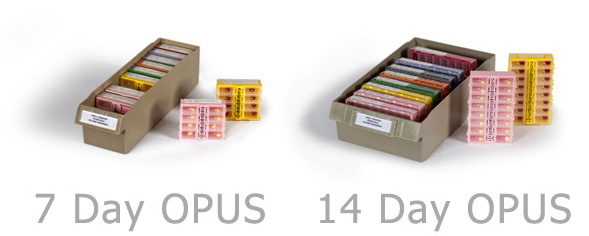Money is regularly lost in long-term care facilities due to dispensed medications not consumed, the result of patient refusal, medication changes, resident discharge or death.
The Patient Protection and Affordable Care Act
Usually unconsumed medications must be destroyed, requiring detailed documentation. Only complete prescriptions which aren’t controlled substances can potentially be returned for reimbursement. All controlled substances must be destroyed.
In 2010, the Patient Protection and Affordable Care Act (PPACA) was passed to reduce the costs associated with wasted medication in long-term care facilities. Intended to go into effect in 2012, this Act requires medication be dispensed in 14 day fills.

It was presumed that short cycle dispensing would result in large savings for long term care facilities. Some even estimated this system would save as much as $1 billion a year.
Studies Raise Concerns
This technique seemed like a great idea for saving money in long-term care facilities. Yet there were was no research that confirmed this. This caused many to feel that this act was premature.
Subsequent studies suggested several factors weren’t considered when drafting the PPACA and that costs could actually increase by $280 million a year from the larger cost of dispensing fees associated with filling the additional prescriptions.
It was determined that to break even medications would have to minimally cost $400 for a 14 day supply which covers less than 2% of prescriptions.
Staff also complained about the increase in paper work required to track order increases logging deliveries, and documentation, interrupting work flow. Administrators expressed concerns regarding overtime pay for staff transition training and those assigned to complete extra paperwork.
It was starting to appear that short cycle dispensing would fail to deliver as promised.
Technological Breakthroughs Save the Day
Medical technology companies were paying close attention to the growing debate and soon began working on systems that would meet the requirements of PPACA and result in cost savings.
Several companies now offer medication management systems designed for dispensing. Based on powerful computer technology, these units can be individualized for each facility, providing pharmacist approved, multi-dose packets for each resident. Ensuring compliance with the 14 day dispensing requirement, staff can also access medication 24/7 to administer PRN’s and medications for late admits.
These systems have become popular with staff and administrators alike. Efficiently handling short cycle dispensing in compliance with regulations, these units also record data whenever the system is accessed. Additionally, the data can be aggregated and analyzed to provide summary reports of medication related issues and trends that may provide important treatment related implications.
The potential for increased financial viability and the cost saving promises of short cycle dispensing are beginning to be realized at many long-term care facilities, improving patient satisfaction and safety.
Jesse Dugan is a part of an elite team of writers who have contributed to hundreds of blogs and news sites. Follow him @JesseDugan.

